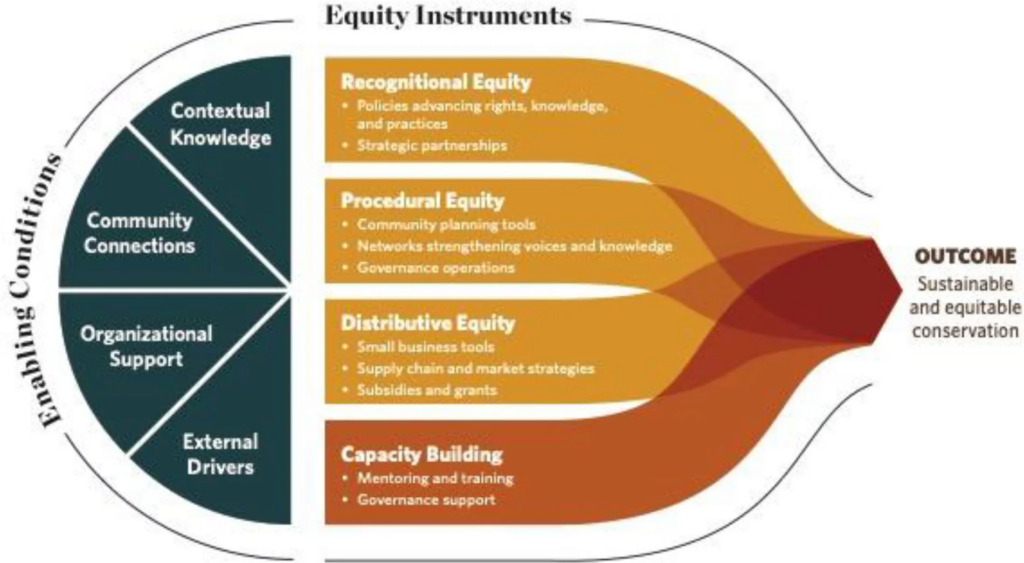Equity in Conservation
Foundational to the success and future of conservation is acknowledging and respecting environmental knowledge and practices of local communities and cultures. People and nature are inextricably linked, therefore integrating in conservation planning is important to achieve conservation goals and address pressing societal challenges. Communities in Florida are experiencing significant climate change impacts in tandem with sprawling development that threatens ecosystem services, as well as wildlife habitat and biodiversity . Underserved communities are facing disproportionate climate impacts coupled with a lack of access to nature and the social challenges that arise from increasing inequality . People created the environmental pressures that result in loss of habitat, threats to biodiversity, land fragmentation, and climate change.
Acknowledging that diverse peoples have distinct connections, appreciation, respect and synergistic relationships with nature is critical to advancing conservation. Engaging with diverse groups and , and embedding equity into conservation planning and practices can increase collaboration and support for conservation efforts, thereby helping to improve conservation outcomes and also advance social justice. Therefore, practitioners and decision-makers must engage and build trust with people across language, culture, political boundaries and all elements of diversity to achieve long-term success and future support for conservation.

The Osceola Greenprint centers equity both in its planning and implementation. The Greenprint was created by embedding and within a diverse stakeholder engagement process to help guide the design and development of the tool. The Greenprint extends data accessibility to users by overlaying multiple geospatial datasets including demographic, socioeconomic, and environmental data to enable a better understanding of benefits, opportunities and challenges. This data can be used to inform conservation strategies such as incorporating local knowledge and cultural values into conservation planning. The outcome of this equity-centered approach is a decision-support tool that can help guide where and how growth occurs in order to advance , and sustainable development. Given that 46% of residents in Osceola County speak English only and another 46% speak Spanish, the Greenprint is accessible in both English and Spanish which is representative of the local languages .
Looking into the future of conservation, we must continue to build partnerships based on trust, respect, equity, open dialogue, integrity and mutual accountability with local communities that have not been traditionally engaged. Strengthening meaningful relationships with and interested parties is essential to developing a shared vision for conservation in efforts to achieve equitable conservation outcomes.